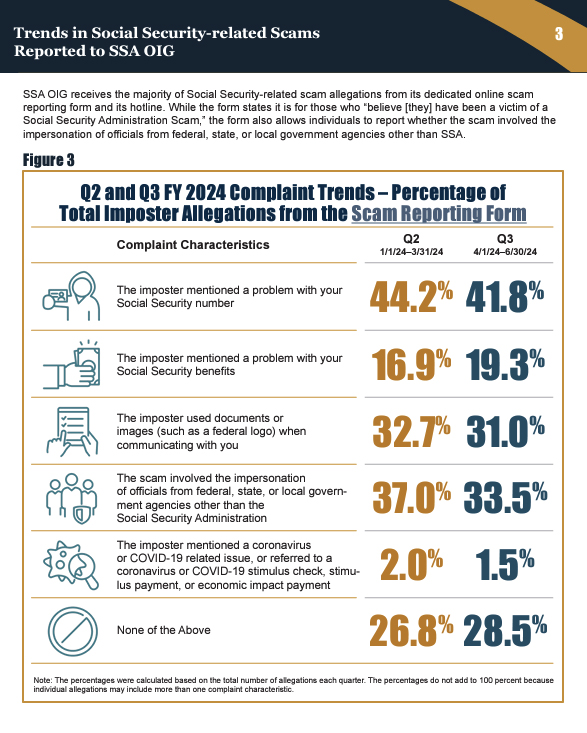EverSafe Newsletter
SENIOR FINANCIAL PROTECTION NEWS
Providing thought-provoking articles, commentary and general information on issues related to aging and financial health.
Covid Vaccines – Fall 2024
CDC HAS NEW RECOMMENDATIONS FOR OLDER ADULTS
 COVID numbers in the US began surging again toward the end of the summer. And if there is one thing doctors agree on with respect to the virus, it’s that it continues to evolve. The latest mutations of the virus that causes COVID accounted for most of the identified cases in the US in August, according to Centers for Disease Control and Prevention (CDC). This is due to its “slightly greater transmissibility, partial escape from immunity, and waning immunity from previous vaccinations and infections,“ according to David Montefiori, director of the Laboratory for HIV and COVID-19 Vaccine Research and Development at Duke University School of Medicine. The Centers for Disease Control and Prevention expanded its Covid vaccine recommendations just last week, recommending that certain individuals get additional doses of the new shots. Specifically, the CDC advised that adults 65 and older and those who are immunocompromised should receive a second dose of the vaccines that rolled out this fall – within six months of their first shot.
COVID numbers in the US began surging again toward the end of the summer. And if there is one thing doctors agree on with respect to the virus, it’s that it continues to evolve. The latest mutations of the virus that causes COVID accounted for most of the identified cases in the US in August, according to Centers for Disease Control and Prevention (CDC). This is due to its “slightly greater transmissibility, partial escape from immunity, and waning immunity from previous vaccinations and infections,“ according to David Montefiori, director of the Laboratory for HIV and COVID-19 Vaccine Research and Development at Duke University School of Medicine. The Centers for Disease Control and Prevention expanded its Covid vaccine recommendations just last week, recommending that certain individuals get additional doses of the new shots. Specifically, the CDC advised that adults 65 and older and those who are immunocompromised should receive a second dose of the vaccines that rolled out this fall – within six months of their first shot.
GOVERNMENT / LEGISLATIVE UPDATE
CAREGIVING HAS BECOME A CAMPAIGN ISSUE
The number of caregivers in the US has skyrocketed in the last decade. According to AARP research, there are currently approximately 53 million US adults who care for a spouse, elderly parent or relative, or special-needs child. That’s up from 43.5  million in 2015. It includes caregivers who also work full-time jobs. When older, vulnerable adults have functional limitations or they are exploited, there can be enormous financial implications for their caregivers. One study found that caregivers of older, vulnerable adults collectively lost approximately $67 billion in lost wages due to unpaid caregiving. And so it should come as no surprise that caregiving has become a major focus of the candidates in the current election. AARP is advocating for bipartisan legislation which is currently pending in Washington. These initiatives include the following:
million in 2015. It includes caregivers who also work full-time jobs. When older, vulnerable adults have functional limitations or they are exploited, there can be enormous financial implications for their caregivers. One study found that caregivers of older, vulnerable adults collectively lost approximately $67 billion in lost wages due to unpaid caregiving. And so it should come as no surprise that caregiving has become a major focus of the candidates in the current election. AARP is advocating for bipartisan legislation which is currently pending in Washington. These initiatives include the following:
- Credit for Caring Act would provide eligible working family caregivers with financial relief in the form of a tax credit to help offset some care expenses.
- Lowering Costs for Caregivers Act would allow family caregivers to use money from health savings and flexible spending accounts for qualified medical expenses associated with care for their parents or parents-in-law.
- Connecting Caregivers to Medicare Act would make it easier for family caregivers to gain access to the personal health information in Medicare of the loved one they are caring for with their permission.
- Alleviating Barriers for Caregivers Act would help reduce red tape for family caregivers in program eligibility, processes, procedures, forms, and communications in Medicare and Medicaid, the Children’s Health Insurance Program (CHIP), and Social Security Administration.
SCAM ALERT
SOCIAL SECURITY SCAMS: A FAVORITE WITH FRAUDSTERS
Scores of Americans have been affected in the recent NPD (National Public Database) breach. According to CNBC, the breach exposed the Social Security numbers (SSN) of nearly 3 billion people. In recent weeks, EverSafe Customer Care has received an unprecedented number of calls from consumers whose SSN and other personal information have been identified on the Dark Web. Many of those affected believe that freezing their credit file is sufficient protection. But as EverSafe members know, we recommend that a number of additional steps be considered. The US Office of the Inspector General/Social Security Administration recently published a chart of reported “imposter scams,” many of which involve a phony issue with the consumer’s SSN. Educating loved ones and clients about these different scams will likely help them recognize these fraudulent communications.

Giving Up the Car Keys…
TRANSPORTATION RESOURCES FOR OLDER ADULTS
One of the greatest challenges faced by older folks, as well as their loved ones, is determining when they should stop driving. Adult children often grapple with this issue, especially when their older parent isn’t ready to give up the car keys despite clear  evidence that their driving is dangerous both to themselves – and others. There is no set age when an elder should stop driving as people age at different rates. But there are ways to help your older loved one cope with the feeling of sadness that often accompanies a loss of independence. One example is to help set them up with alternate means of transportation – whether for buying groceries, getting to a doctor’s appointment, or simply visiting friends. MastersinPublicAdministration.org (Cole Neder) and Studentsforresearch.org has compiled a useful list of transportation options for seniors – in every state.
evidence that their driving is dangerous both to themselves – and others. There is no set age when an elder should stop driving as people age at different rates. But there are ways to help your older loved one cope with the feeling of sadness that often accompanies a loss of independence. One example is to help set them up with alternate means of transportation – whether for buying groceries, getting to a doctor’s appointment, or simply visiting friends. MastersinPublicAdministration.org (Cole Neder) and Studentsforresearch.org has compiled a useful list of transportation options for seniors – in every state.
Ageism Awareness Day
ASHTON APPLEWHITE REFRAMES THE CONCEPT OF AGING
 Ageism Awareness Day was recognized on October 9th this year. The public acknowledgment of this day was first established by the American Society on Aging (ASA) last year to bring attention to the negative effects of ageism and to encourage people to rethink their perceptions of what it means to get old. Ashton Applewhite is a writer and activist based in Brooklyn, New York. A well-regarded author on ageism, including a book entitled “This Chair Rocks: A Manifesto Against Ageism,” Ashton is a passionate advocate for the cause. Her Ted Talk on ageism is thought-provoking and worth a listen. Click here to listen to her talk.
Ageism Awareness Day was recognized on October 9th this year. The public acknowledgment of this day was first established by the American Society on Aging (ASA) last year to bring attention to the negative effects of ageism and to encourage people to rethink their perceptions of what it means to get old. Ashton Applewhite is a writer and activist based in Brooklyn, New York. A well-regarded author on ageism, including a book entitled “This Chair Rocks: A Manifesto Against Ageism,” Ashton is a passionate advocate for the cause. Her Ted Talk on ageism is thought-provoking and worth a listen. Click here to listen to her talk.



